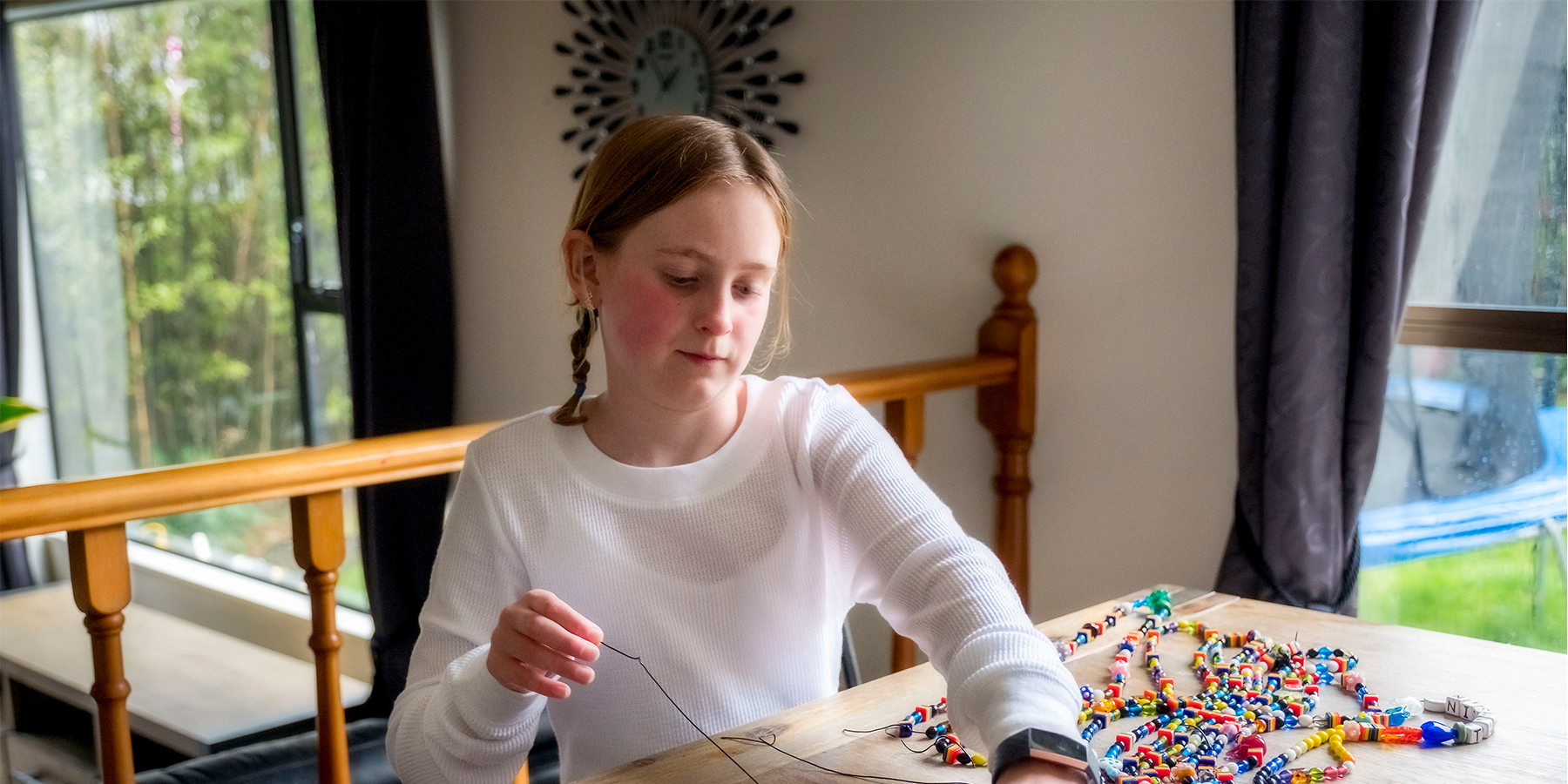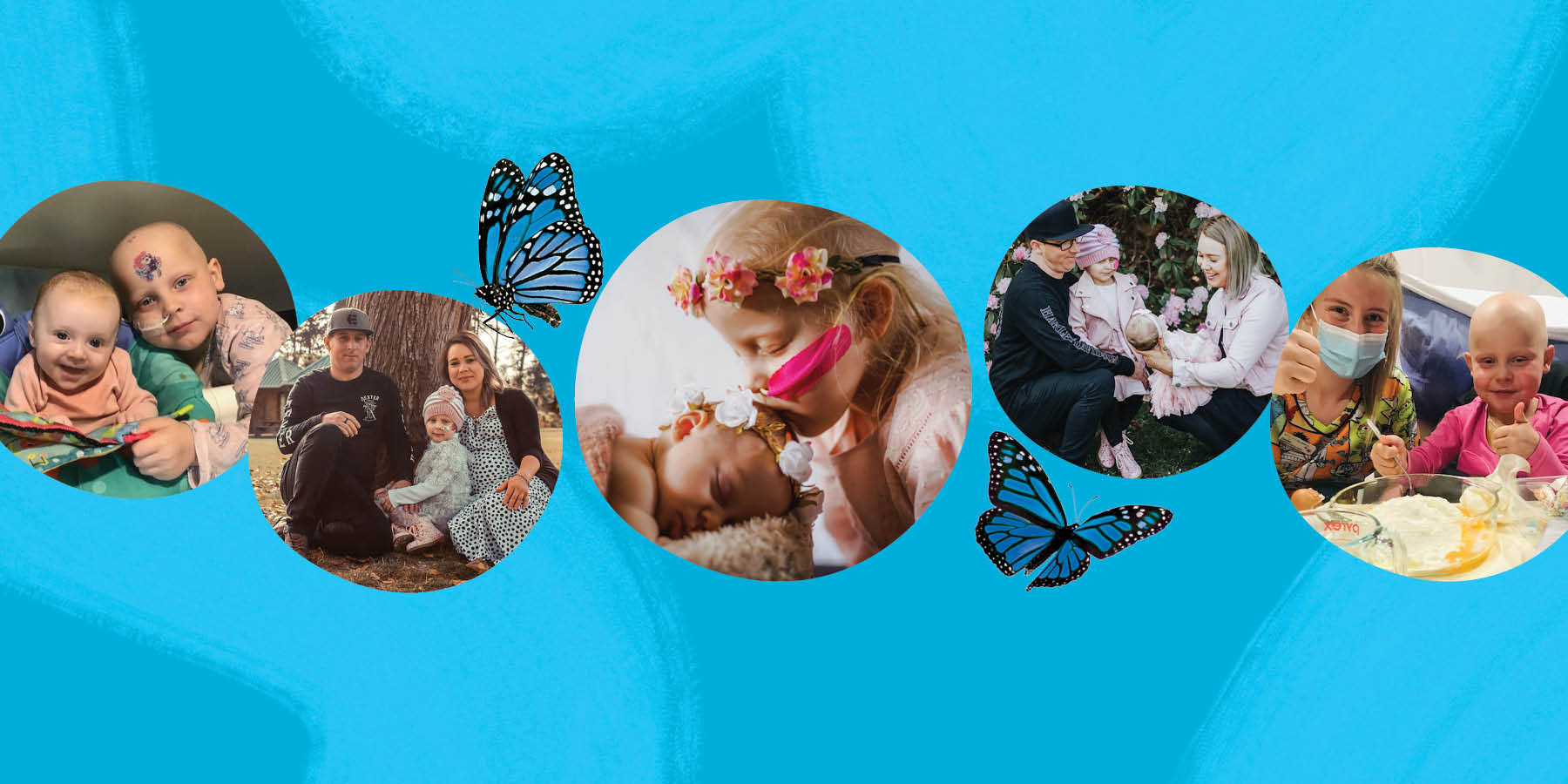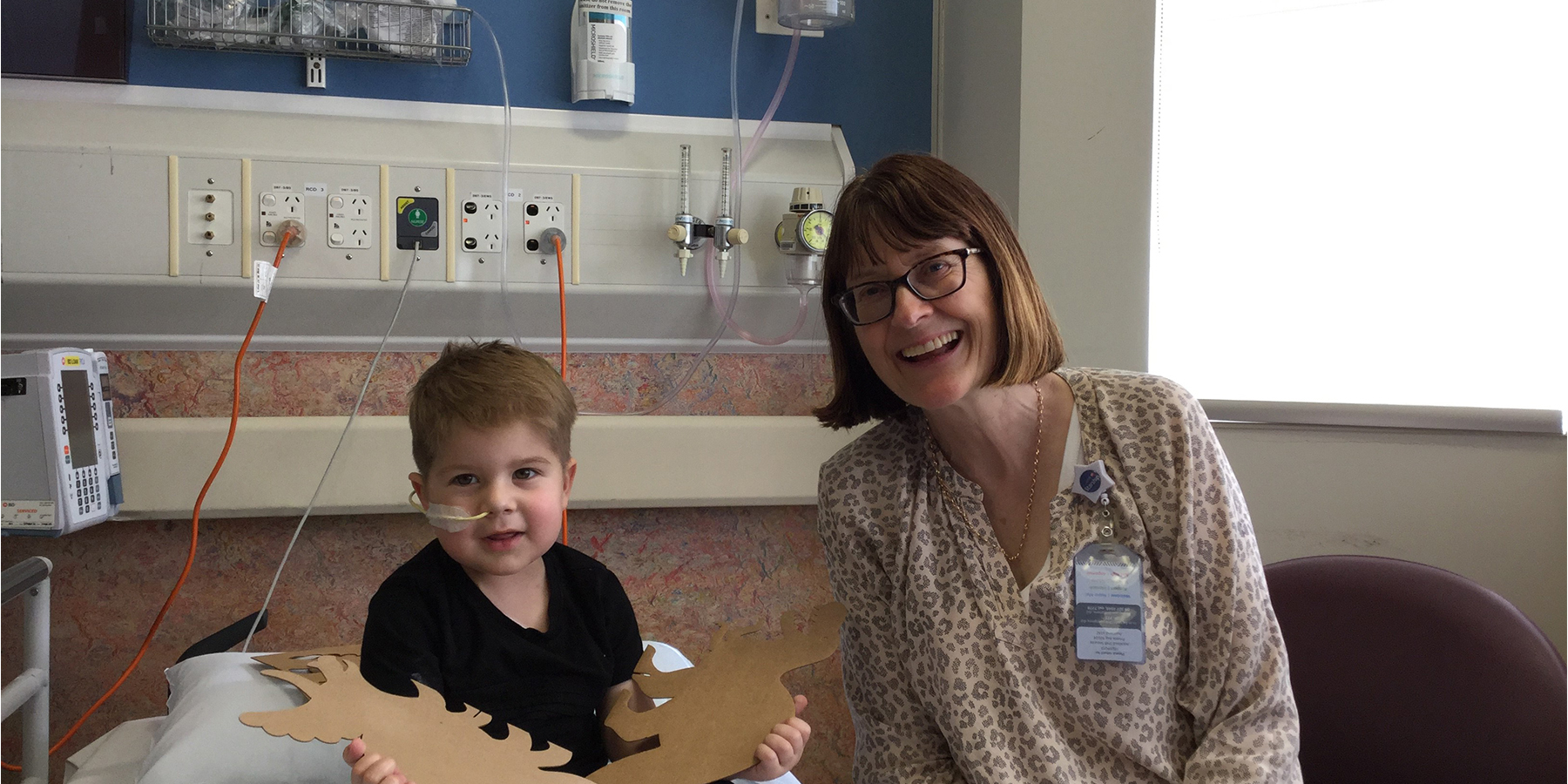How your child’s cancer could be affecting their siblings
Cancer can be difficult for your child's brothers or sisters. It's common for siblings to feel guilt, rejection, fear, depression, or anxiety. Here is a helpful resource to support them through their emotions.
Key points to remember about the effect of your child’s cancer on their brothers and sisters
- Siblings may react to a cancer diagnosis by developing problems (academic or behavioural) or physical symptoms such as stomach pain or headaches
- Try to have open and honest conversations with your children about their brother or sister’s cancer and the treatment
- You and your extended family members can help your other children by making them feel important too
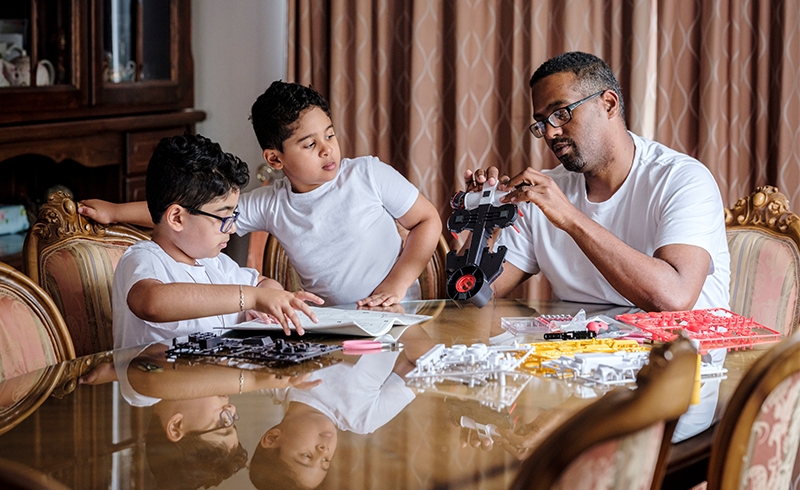
How can brothers and sisters be affected by their sibling’s cancer?
Brothers and sisters often get information about their sick sibling second or third hand. Sometimes they hear the information from their grandparents or other relatives who are caring for them while you are at the hospital. This can lead to misunderstandings about your child’s cancer and treatments.
They may react by developing academic or behavioural problems or physical symptoms such as stomach pain or headaches. They may also become overly clingy or anxious and have trouble sleeping or concentrating.
Feeling sad
Diagnosis of cancer within the family/whānau is a very stressful event that may change the nature of the family. Children often mirror the level of anxiety shown by other family/whānau members, including parents. Some children find it very difficult to talk about their feelings with family/whānau members for fear or worry of upsetting or burdening them. This can be a challenge also for siblings sharing with friends or extended family when everyone is asking how their sibling is doing rather than asking about them.
Feeling guilty
Some children will feel that they should have been the one to get sick or that they somehow caused the illness. Sometimes they might have negative feelings about their sibling and be ashamed that they are thinking them.
Feeling jealous and left out
A child with cancer gets a lot of attention from the family/whānau, community and hospital staff. You may have to leave your other children at home or with friends or relatives while you care for your sick child. Your children may see treatment days as ‘special’ outings for you and your child with cancer. You and extended family members can help your other children by making them feel important too. Often a little extra attention can go a long way.
Feeling angry
As treatment progresses and your child starts to look and act ‘healthy’, brothers and sisters can start to resent the continued attention they receive. Parents often complain of behavioural problems with siblings as treatment continues. Make sure you continue to have regular, open conversations with them. Explain just because their sibling is looking healthier – it does not mean that they have necessarily had their cancer cured.
Worrying about what is happening at the hospital
Your children may worry about what is going on at the hospital instead of concentrating in class. On a ‘bad’ treatment day, your child may come home sick, and you may well be worried. If blood counts are low, there is always the chance that you will have to stay with your child in hospital. Siblings often admit to worrying their sibling may die.
Reassure your children that cancer does not necessarily end in death. In fact, most children with cancer have excellent recoveries.
Worrying that other family/whanāu members might get cancer
There are still many mistaken beliefs about cancer in the community. Reassure your children that they can’t catch cancer. Let them know there is also a low likelihood that other family/whānau members will also have cancer. Good age-appropriate cancer education can help with this.
Remind them that cancer is not common in young people and that it is different to adult cancer.
Missing parents
Caring for your sick child will take a lot of time and energy, whether your child is at home or in hospital. Unfortunately, this means that sometimes brothers and sisters often have to ‘make do’ until things improve. This may mean a lack of emotional support or no one to help with things such as homework.
As childhood cancer treatment may continue for up to 2 to 3 years, it can have a major effect on your other children. Support your child to develop stronger relationships with other adults or peers during this time. This will help build resilience and strengthen their support network during this difficult time.
Worrying about you as parents
It is hard to see anyone that you love upset by something that no one can control. Often older brothers and sisters feel the need to support parents during the ‘crisis’ times. They may also feel lonely because they don’t want to worry you. Siblings often feel pressure to be good all the time or to take on much more household responsibility than is usual for their age. As a result of your energy being taken up by your sick child, your other children may have to rely on friends and teachers for support.
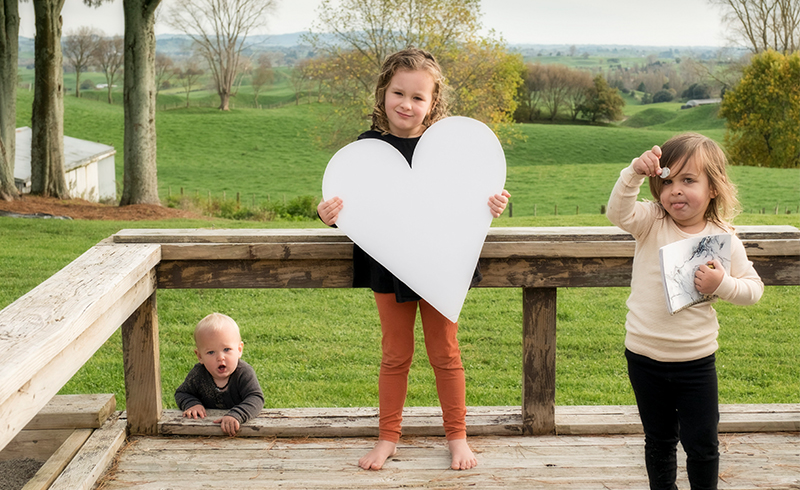
What can I do to help my children during their sibling’s cancer treatment?
Encourage them to discuss their feelings
Remind your children that whatever they are feeling – it is perfectly normal. Encourage them to discuss what they are feeling and not to bottle up their emotions.
You can ask them to write down any questions they might have and seek out answers.
If they do not feel comfortable talking with you about their feelings, you could suggest they try keeping a journal instead.
Child Cancer Foundation can help by referring them to counselling services if needed. Just talk to your Family Support Coordinator.
Get them involved
Sometimes it can be a good idea to encourage your other children to come along to doctor and hospital appointments. This way they can keep up to date with what is happening. Talk with them regularly about updates so that they are not left wondering.
Remind them they are not to blame
It is a good idea to remind younger children that they are not to blame for their sibling’s cancer. It is also important to let them know that it is OK for them to have fun and play with their friends while their sibling is sick.
Let your children have time out from cancer
Having a sibling with cancer can be emotionally draining. It’s important that your other children feel they can have a break from their sibling’s cancer and treatment. For example, you can encourage them to spend time at a friend or neighbour’s house.
Talk with their school
It might help to let your other children’s school or teachers know what is going on for them so they can provide additional support. This is also helpful if they are developing behavioural or academic difficulties.
Can any positives come out of a sibling’s cancer treatment?
While there are many challenges for siblings of cancer patients, research has shown that there can be some positive effects as well.
These include:
- An increase in sensitivity, compassion and empathy towards their sibling with cancer and others
- An increase in family/whānau closeness
- An increase in maturity
- Pride in their sibling’s achievements
- Pride in their own achievements during times of stress
- Increased sense of independence
- Increased appreciation of life
- Maturity and resilience
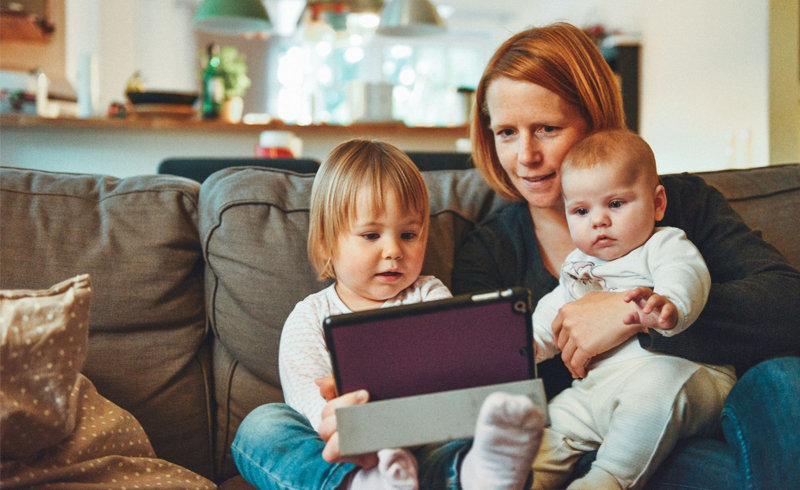
KidsHealth has more useful resources for people impacted by childhood cancer. If you are a parent or caregiver, find more information here. If you are a teacher, find more information here.
This article was originally posted on KidsHealth and was reposted here with permission.
